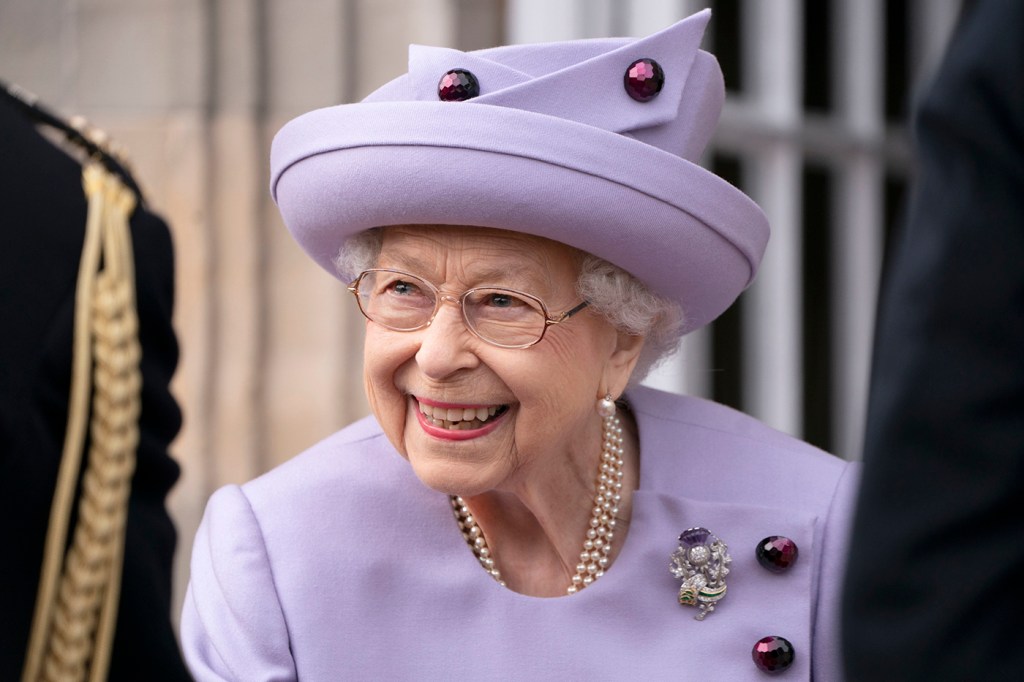Northeastern’s London campus reacts to passing of Queen Elizabeth II, the ‘embodiment of stability’

News of Queen Elizabeth II’s death on Thursday sent a shockwave around the globe. Following the announcement, world leaders paid their respects and crowds grew outside Buckingham Palace.
Just four miles away at Northeastern University – London, third-year history student Chloe Rogers reflected on the queen’s legacy.
“It’s the end of an era,” she says.
The royal family announced that the queen, 96, died “peacefully” at Balmoral Castle, where she was residing while on a visit to Scotland. Her son Charles is now king, taking the name King Charles III. This marks the first time in 70 years that the people of the United Kingdom have a new monarch.
“Many of us have grown up with the queen as monarch,” Rogers says. “It’s going to be an interesting time as we move forward and see how the new King adapts to the role.”
Toward the end of her life, the queen’s role was largely ceremonial and she had little political power. Still, Northeastern experts say her role as a stabilizing force for the British people cannot be overstated, and that her loss will be felt.
After holding the throne through the United Kingdom’s transition to a commonwealth, its break with the European Union, the COVID-19 pandemic, and countless other notable moments in British history, the queen, while largely silent on political matters, still commanded “universal respect” throughout her reign, Faissal Hameed, lecturer at Northeastern University – London, says. The monarch also acted as a “national cement” for the countries of the commonwealth, he says, despite its controversial legacy.
“Elizabeth II was the embodiment of stability,” says Estella Paranque, assistant professor at Northeastern University – London. Her compassion, as well as her calmness, made her an almost universally beloved figure, Paranque says. “She almost feels like a safety blanket, because as long as she’s there, it brings the British people together.”
Paranque also speculates that part of Elizabeth’s power was in her womanhood and her maternal presence, adding that “she was the grandmother of our country.”
Naomi Goulder, a senior lecturer in philosophy at Northeastern University – London, remembers seeing Elizabeth II in person when Goulder was a student at the University of Cambridge. There, she experienced firsthand the level of reverence for the queen.
“It was full of ceremony,” she says, “including the staff drawing velvet curtains over the oil painting of its alumnus Oliver Cromwell in the dining hall, before her entrance.”
Part of the queen’s legacy as a stabilizing force comes from her sheer longevity as a ruler. Elizabeth II was 25 when she became queen after the death of her father King George VI in 1952, when Winston Churchill was prime minister. She worked with 16 prime ministers during her reign, including Liz Truss, who officially became prime minister after meeting with the queen at Balmoral on Tuesday. In June 2022, Elizabeth became the first British monarch to celebrate a Platinum Jubilee, commemorating 70 years on the throne.
Plans have been in place to prepare for the Queen’s death for years, including media outlets holding rehearsals. The queen had slowly retreated from some public duties toward the end of her life, and Charles opened Parliament earlier this year.
It’s unclear what, if anything, will change in the United Kingdom under King Charles III. With Elizabeth’s death coming amid an economic crisis and political turnover, “we’re going to feel a bit lost,” Paranque says, calling this moment “the end of an era.”
It may cause a shift in public opinion about the monarchy. Charles, Paranque says, will likely not have the “same touch” as his mother, and he is not as popular. This may cause more people to question the role of the monarchy in modern society. “It forces the monarchy to reveal how they’re going to change, how they’re going to evolve,” Paranque says.
The purpose of the commonwealth may come into question as well. The queen, Paranque says, was a symbol of unity. Haseed notes that she traveled widely to commonwealth nations throughout her reign; in recent years, however, countries have left the commonwealth, and questions have emerged over its purpose and its legacy as part of the British Empire. The queen’s death, Paranque says, may accelerate these questions.
As for the queen herself, her legacy will likely be a positive one. While she ruled in a different context than other monarchs, “I think she will be remembered as one of the greatest monarchs that has ever lived, and not just in the U.K.,” Paranque says.
“There’s no one like her.”
For media inquiries, please contact media@northeastern.edu.






